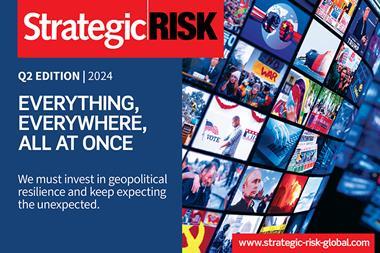Did fintech superstardom enable the Greensill collapse and could it have been prevented?
Supply Chain Finance is a low risk, low margin industry worth $26bn a year, mostly carried out by big banks to bluechip triple-A rated clients. Its potential for growth is real, but fintech superstardom led many to drop their guard.
It certainly has all the hallmarks of a great Hollywood movie not least because a generally high risk, low profit finance business passed itself off as low risk and highly profitable through one magic word : “fintech”.
Greensill pitched itself as a “tech disrupter” that wanted to “democratise capital” by being the “Amazon of the working capital world”. It was hailed as a Fintech superstar, but in reality, there was quite a bit more ‘fin’ than ‘tech’.
2021’s Enron?
The aftershocks of the collapse of Greensill Capital will continue to be felt for some time with historical comparisons to the 2008 GFC and 2001 Enron collapse among others.
Was Greensill trying to create a new asset class as SG Warburg did with eurobonds, or maybe that should be KKR with leveraged buyouts? Then there’s Carillion and NMC Health, both of which had significant use of supply chain financing.
Supply chain financing has taken some seriously bad press in the last few months but it has been around a long time. Its close relative, invoice factoring, helped finance European commerce in the 15thC, drove the economic engines of the British empire in the 19th century and the US textile industry in the 20th. Today, it underpins and is championed by scores of reputable businesses, from Rolls-Royce to Vodafone and AstraZeneca.
As the Financial Times pointed out this week, what Lex Greensill was actually offering was a new spin on a form of financing that dates back at least 4,000 years to Bronze Age Mesopotamia.
There is certainly no shortage of theories of what went wrong, and here are some of them:
- Was it a fatally flawed idea? It was, if properly done, a very well established financing technique, so the answer that is ’no’.
- Was it a pandemic casualty? Not really. Greensill’s borrowers were not SMEs, which were and are by far the greatest casualty.
- Was it the canary in the coal mine of corporate debt? Possibly.
- Was it driven by the hunt for yield in a low interest rate world? Getting warmer here, but there are bigger examples of investors hunting for yield by reducing credit quality.
The most credible explanation for what went wrong was in the execution of what is, essentially, a sound business. Greensill expanded into lower credit quality assets, it had too many funding sources, all of which complicated management. And the ‘tech’ in its fintech was lacking.
A risk-taking culture
The storm clouds gathered over Greensill at a critical time because Covid-19 was supercharging supply chain finance. In common with many others, we at OCI saw the pandemic put massive strains on working capital cycles, and a concurrent surge in demand from companies seeking additional support to smooth cash flows.
According to consultancy Oliver Wyman, up to 80 percent of supply chain financing is carried out by big banks, with most of it offered to domestic clients. But a growing number of specialist non-bank businesses, such as Greensill, had been moving into the market with higher returns in their sights.
Cue Lex Greensill’s more speculative and risky products - such as ‘future accounts receivables finance’, basically lending of money to a company before a sale has been made, based on the expectation of future sales and future payments.
Backed by Credit Suisse’s securitisation machine and Softbank’s $100 billion Vision Fund, the lending appetite for what had, until then, been strictly a supply chain solution now extended beyond short-term loans to cover trading partners and into long-term lending in sectors like real estate start-ups.
Emperor’s new clothes
This should immediately have raised alarm bells. Short-term money is cheap because investors are meant to be able to get out of the trade quickly. If it ever tanked, you shouldn’t lose too much. If it’s being used for long-term obligations, something else is going on.
So what does this mean for insurers and risk managers and could it happen again?
Much attention has focused recently on Credit Suisse and others, such as revered tech investor General Atlantic, who should have been the grown-ups in the room.
There is also discussion about the role of Greensill’s trade credit insurers and its broker, Marsh, and whether or not red flags were raised when they should have been.
After the blunders over first Greensill and then Archegos triggered senior sackings at Credit Suisse, questions still remain over the management culture there.
Credit Suisse is no slouch when demonstrating its credentials as a risk expert. It has countless risk committees and risk-detection algorithms, and of course a dedicated chief risk officer. But this is precisely the problem.
All the risk apparatus merely creates a bureaucratic, process-driven, pseudo-scientific culture that is effectively trying to automate risk management.
The best person to take responsibility for risk assessment is not a dedicated risk officer, but the chief executive.
Then there is the enthusiasm for lightening the payroll by delayering senior management grey hair, and surprise when that leads to groupthink and emperor’s-new-clothes syndrome.
Preventing another Greensill
Auditors have long been baying for regulatory attention in supply chain finance and those who voiced concerns about Greensill’s business model in recent years will continue to watch closely until real change happens.
The woes of Greensill and all those implicated in its collapse will ultimately be settled in the courts and that will almost certainly take years.
Making supply chains run efficiently for all parties needs a concierge approach where finance is only part of the offer. And that needs combining with an exceptionally keen-eyed approach to due diligence.
Supply chain partners, like the customs officers they often have to deal with, are prone to an ABC style of management: Accept nothing, Believe nobody, Check everything.
Build your business on attention to detail, deep research and long-term relationships where you truly understand your partners’ business. No algorithm is going to replace that.
Oliver Chapman is group CEO of supply chain partner OCI.




















No comments yet